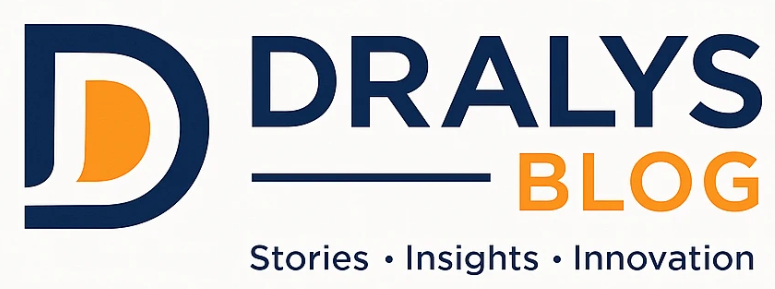The Ongoing Search for Justice: A Case Study in Leadership, Society, and Ethics
In contemporary society, the implications of leadership extend beyond mere decision-making; they traverse the intricacies of governance, ethics, and innovation in the face of pressing societal challenges. A recent unfolding event in Victoria, Australia, surrounding the manhunt for Desmond “Dezi” Freeman, exemplifies these interconnected themes.
On August 26, 2025, law enforcement reported a solitary gunshot near Barrett Lane and Rayner Track in Porepunkah, approximately 210 kilometers northeast of Melbourne. This incident marked a pivotal point in a long-term pursuit of Freeman, who is alleged to have shot at police, resulting in the tragic deaths of Detective Senior Constable Neal Thompson and Senior Constable Vadim de Waart-Hottart, while wounding a third officer.
This harrowing situation underscores a critical aspect of governance and leadership in the face of violence and crime. The response of the Victoria police to the new leads highlights an ongoing commitment not just to the safety of the community but also to their integrity in conducting thorough investigations. The innovative application of “firearms testing” strengthens their approach, leveraging forensic science as a means to gather evidence that may illuminate the whereabouts of Freeman and offer closure to the victims’ families.
Leadership and Ethical Governance
The manner in which the Victoria police have navigated this challenging scenario reflects the essential qualities of leadership grounded in ethics. Their proactive strategy of community engagement, calling upon the public for any information surrounding the gunshot, showcases a governance model that values transparency and collaboration. Ethical leadership demands accountability and reliability, especially when lives are at stake, and the police have stepped into their role as guardians of public safety with an earnest resolve.
Chief Commissioner Mike Bush’s remarks resonate with the uncertainties that accompany such pursuits. He stated, “Is he still alive? We don’t know.” Such admissions, while unsettling, speak to an ethical leadership approach where honesty and transparency replace evasiveness and misinformation. It is a reminder that the complexities of human behavior often defy prediction, demanding adaptable and innovative solutions. As civic leaders grapple with modern complexities around safety and security, their effectiveness hinges on their ability to approach scenarios with both decisiveness and humility.
The Role of Innovation in Crisis
Innovation in policing is not solely about technology; it encompasses the restructuring of traditional methods and ideologies to meet emergent challenges. The tactical operations conducted in this case, which involved hundreds of officers and specialized units, illustrate a strategic application of resources that is crucial in the contemporary era of law enforcement. However, this case also highlights a broader opportunity for innovation within leadership frameworks in society at large.
In leveraging a reward of $1 million—the largest in the state of Victoria’s history—alongside the promise of indemnity for information leading to Freeman’s capture, police have tapped into the potential of community partnerships. This financial incentive not only motivates public involvement but also symbolizes a trust in societal collaboration, recognizing that community members are essential stakeholders in the pursuit of justice.
The Ripple Effects on Society
The ramifications of such cases extend further than immediate law enforcement responses; they ignite deeper conversations around societal responsibility and moral obligation. Communities inherently shape the landscape of social justice, which calls for an ethical examination of interpersonal relations and societal structures. Individuals are encouraged to remain vigilant in the face of adversity rather than retreat into complacency.
Moreover, the societal narrative surrounding the search for Freeman can serve as a vital learning moment regarding how communities perceive law enforcement and engage with governance. This initiative can potentially reframe public dialogue around safety, crime, and the role of police in maintaining order within society.
Dralys Insight
In retrospect, the ongoing search for Desmond “Dezi” Freeman imparts several key lessons and insights for leaders, citizens, and society at large:
-
Collaboration is Crucial: Effective leadership hinges on community engagement. Law enforcement must acknowledge that citizens are invaluable allies rather than mere bystanders.
-
Transparency Builds Trust: Honest communication fosters stronger relationships between citizens and institutions. It is essential for maintaining public confidence, especially in times of crisis.
-
Ethics should Inform Decisions: Leadership grounded in ethical considerations can guide actions in a manner that reflects societal values and morals.
-
Innovative Approaches Shape Outcomes: Exploring new methods—whether through technology or expanded community involvement—can enhance effectiveness and adaptiveness in addressing contemporary challenges.
-
Safety is a Shared Responsibility: A vigilant and involved community is essential for societal security. Individuals must feel empowered to participate in governance to ensure justice is upheld.
-
Navigating Uncertainty Requires Flexibility: Leaders must be prepared to adapt to evolving circumstances, acknowledging the unpredictable nature of human behavior and societal dynamics.
In sum, the narrative unfolding around the manhunt for Desmond “Dezi” Freeman is not simply a law enforcement story; rather, it encapsulates the broader themes of leadership, community, and the ethical responsibilities that we hold towards one another in the pursuit of justice and a safer society.
Adapted for Dralys Insight from global reports and public sources.

